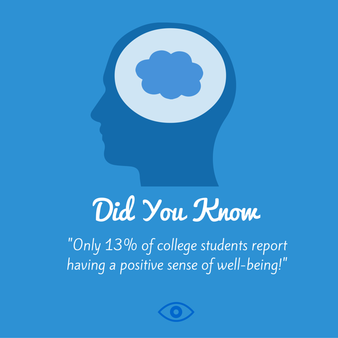 Prospective students and parents often view college rankings as one of the most important factors, if not the most important factor, to look at when applying to college. But what rankings don’t take into consideration is how well that college fits a student’s personality and meets that student’s individual needs. Kathleen deLanki writes in her article published yesterday in The Washington Post, which you can view here, that research shows “at the college level, it’s all about helping students and faculty to be engaged, hopeful and to thrive. These are actually predictors of success in life and work.” She goes on to say that according to Gallup surveys, “only 13% of college students report having a positive sense of well-being.” deLanski implies that a student’s well-being is a primary predictor of success; therefore, choosing a college that is well suited for that student and offers a nurturing and supportive environment should be front and center when deciding which schools to apply to and which one to ultimately enroll in. When I create proposed college lists for students, I aim to include information about the college’s First Year Experience and the Living-Learning Communities they offer. These programs, which I have defined below, are geared toward acclimating students to college life, engaging them in the campus community, providing mentoring and guidance, and offering academic support. First-year Experience (FYE)—specifically designed to help freshman successfully transition from high school to college. Click here to see an example of the FYE at a larger university (UT Austin) or here to see an example of one at a smaller campus (Pomona). Living-Learning Communities—houses students with similar interests or in similar programs together in an effort to help them feel more connected and more engaged. Boston University, for example, offers more than 30 themed housing options that can be viewed here. Other elements students should look at include the level of academic support offered, what the student advising program is like, and what kinds of internships and co-ops are available. While there are no guarantees that a student will successfully adjust to college life, universities that invest in and offer these kinds of programs communicate the message that the college cares about the well being of its students. It’s a great place to start the process. |
